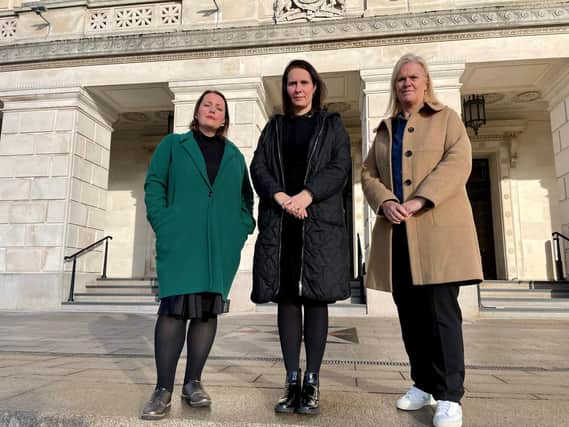Jailed paramilitaries using associates to stalk former partners, MPs warned


A Westminster committee heard that abuse victims find it more difficult to escape the coercive influence of their abuser, or report them to the police, when paramilitarism is involved.
Representatives from women's organisations who support victims gave evidence to the Northern Ireland Affairs Committee yesterday, during a meeting in Parliament Buildings at Stormont.
Advertisement
Hide AdAdvertisement
Hide AdAddressing the committee's inquiry into the effect of paramilitarism in society, Elaine Crory from the Women's Resource and Development Agency said the coercive control exerted by gunmen on women during the Troubles has not gone away.
"Sometimes (during the Troubles) there were cases of paramilitaries using the coercive control they had over their 'own community', to control the women in that community and to keep them in line," she said.
"And that hasn't gone away. But it was certainly a huge problem during the conflict and, you know, all of the trauma and all of the harm from that time hasn't necessarily been dealt with or hasn't been dealt with well."
She highlighted the experience of women who had been stalked by paramilitary associates of their abusers.
Advertisement
Hide AdAdvertisement
Hide Ad"People kept telling us that they had been stalked by paramilitary associates of their former partner, as well as by their former partner, and that part of the abuse was the threat of 'well, you may get me out of this house, but you'll never get rid of me, I will always be watching you'."
Sonya McMullan, from the Women's Aid Federation NI, highlighted one case where a drone was used to monitor a stalking victim in Northern Ireland.
"We had one woman where cameras were actually installed in the neighbour's (house) across the road, so they could see them at all times," she said.
Siobhan Harding, from the Women's Support Network, gave evidence on the activities of paramilitary loan sharks.
She said women with "nowhere else to go" were resorting to the paramilitaries to lend money with extortionate interest rates attached.